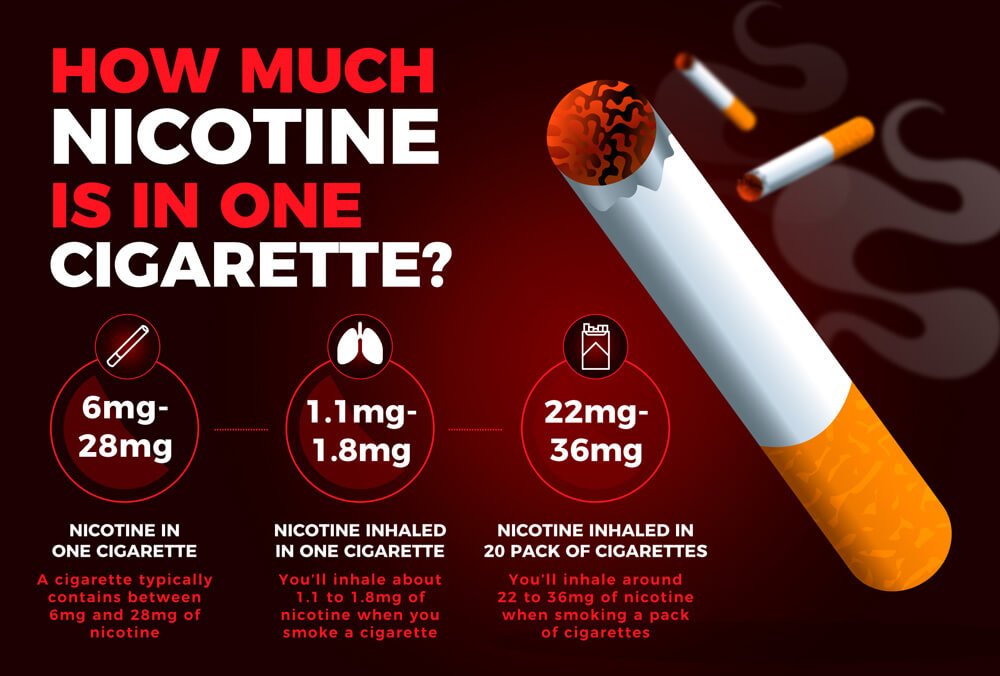The repercussions of tobacco consumption stretch far beyond its widely acknowledged health effects. An often overlooked aspect is the significant damage inflicted on an individual’s financial stability. This unrecognized facet demands more scrutiny to bring to light how tobacco consumption can lead to monetary downfall and its subsequent emotional strain.
It’s no novel finding that tobacco products come with a hefty price. However, it might not be immediately apparent just how drastic the effect of habitual smoking can be on your wallet. We aim to explore not only the immediate monies spent on buying these products but also the hidden expenses encumbered as a result of this addictive habit.
Additionally, many may overlook the long-term aspects of these expenses, such as increased healthcare costs due to smoking-related illnesses, potentially higher insurance premiums, and the less tangible but similarly impactful opportunity cost associated with spending on tobacco products. We hope to shed light on these aspects, helping smokers understand how quitting smoking can be a beneficial financial decision, as well as a healthful one.
Through careful research and examination of this complex issue, we will delve into the intricate relationship between tobacco use and its financial implications, providing a comprehensive analysis for our readers. A much-needed perspective that is often ignored in the shadow of health discussions.
Grasping the Financial Consequences of Using Tobacco Products
Many individuals underestimate the extent to which habitual usage of tobacco products can drain one’s personal financial resources. The impact is not confined to the direct cost of purchasing these products, but also extends to indirect expenses related to healthcare and a decrease in work productivity. In order to fully comprehend this, we need to delve deeper into these aspects.
Firstly, the direct expense of buying tobacco products such as cigarettes, cigars, and chewing tobacco weighs heavily on one’s wallet. Across most countries, the taxes levied on these products are significant, making them a luxury expense. Additionally, as the addiction takes hold, the quantities consumed often increase, leading to escalating costs which strain personal finances.
Indirect Expenses Associated with Tobacco Use
Healthcare Costs: Regular consumption of tobacco invariably takes a toll on the individual’s health. This results in a higher outlay on healthcare. It encompasses everything from routine check-ups and medication to expensive treatments and hospital stays for severe conditions caused by tobacco usage such as lung cancer, heart disease, and emphysema.
Decreased productivity: Tobacco users often experience decreased work productivity due to health issues resulting from their habit. This can lead to earning less or missing opportunities for career advancement. For self-employed individuals or business owners, the productivity dip can even affect business operations and profits.
Understanding the financial consequences of using tobacco products is essential. It can help individuals make informed decisions about their lifestyle choices, prioritizing their long-term financial health over short-term satisfaction derived from tobacco use. This awareness can serve as a strong motivating factor for those contemplating quitting their tobacco habit.
- Direct cost: The monetary expense of purchasing tobacco products.
- Healthcare costs: Expenses incurred due to health issues caused by tobacco use.
- Decreased productivity: Loss of earnings due to reduced work efficiency.
The Untold Financial Drain of Tobacco Consumption
Tobacco consumption, often regarded as harmless leisure or a stress-relief mode, can lead to significant financial drain over the course of time. From the purchase expenses to the long-term medical costs associated with its impact on health, the habit of using tobacco can turn out to have substantial hidden costs.
Many smokers and tobacco users often overlook these silent financial impacts as they get veiled under the immediacy of cravings or societal habits. Irrespective of whether someone indulges occasionally or heavily, the financial burdens accumulate stealthily, affecting personal finances on a larger scale than visible at the surface.
Monetary Costs of Purchase and Health Impacts
The direct financial costs associated with tobacco consumption comes in two primary forms: purchase costs – the actual money spent on buying tobacco products, and the healthcare and medical expenses that emerge out due to the health hazards caused by tobacco use.
- Purchase Costs: While the outlay on buying tobacco might seem minuscule on a day-to-day basis, adding up these small expenses can lead to a large sum annually. This amount then, could have otherwise been saved or invested in growth-bearing financial avenues to improve personal financial health.
- Healthcare Costs: Long-term use of tobacco negatively affects physical health, leading to various chronic conditions like cancer, lung diseases and heart ailments. The medical costs linked to these conditions can be very high, especially if the individual lacks sufficient health insurance coverage. Hospitalizations, medications, surgeries and long-term treatments pile up to create a heavy financial burden.
Moreover, the indirect financial losses like loss of earnings due to frequent health issues and lowered productivity also factor into the total costs of tobacco use.
In conclusion, the true financial costs of tobacco usage are often hidden beneath the immediate expenses, painting a grim picture of the unsustainable nature of this habit. It is essential to raise awareness about these not-so-apparent financial burdens to discourage people from starting or continuing tobacco use.
Calculating the Financial Impact of Tobacco Purchasing
Substantial financial burdens are imposed by the persistent habit of using tobacco products. The apparent and easily calculable expense is the cost incurred from frequent purchasing, which most people disregard in the course of time. However, this represents just the tip of the iceberg when it comes to a comprehensive understanding of the monetary consequences of tobacco consumption.
Unusually, most people fail to conceive of these costs in terms of other life necessities or luxuries that could have been furnished by the same amount spent on tobacco. It is crucial to raise awareness of the financial connotations associated with indulging in tobacco products on a daily basis.
Direct Costs of Tobacco Procurement
The most conspicuous financial strain triggered by tobacco use, without a doubt, is the direct cost of buying the product. This immediately drains the user’s disposable income, as the cost of tobacco products is often high, particularly when you factor in the increasing tobacco taxes that many nations have implemented as part of public health initiatives.
If we begin to break down the expense, you might be startled by how quickly it adds up. Let’s hypothesize that a pack of cigarettes costs $6, and an habitual smoker consumes a pack daily. In just a month, the expense adds up to $180, leading to an astounding annual amount of $2,190 – just for cigarettes. Multiplying this by the number of years one smokes produces a staggering figure.
Secondary Expenditures Stemming from Tobacco Consumption
However, the financial impact does not end there. The indirect, or hidden costs, associated with tobacco use may very well exceed the direct costs. Healthcare, increased insurance premiums, loss of productivity, and even cost of quitting efforts are all potential financial consequences to consider.
- Medical Costs: Chronic tobacco use often leads to a variety of health issues, including heart disease, respiratory disorders, and cancer. These conditions may necessitate frequent doctor visits, hospitalization, or costly medication.
- Insurance Premiums: Health, life, and even property insurance rates are typically higher for tobacco users, given the associated health and fire risks.
- Lost Productivity: Tobacco-induced health issues may lead to a decrease in productivity at work. This often results in increased sick days or even job loss.
- Costs of Quitting: Many tobacco users who attempt to quit often spend money on aids such as nicotine patches, medication, or counseling services.
Carefully considering the influence of tobacco use on personal finances offers a fresh interpretation of the consequences that extend beyond health deterioration. This perspective also provides a compelling incentive for tobacco users to quit.
The Financial Burden of Healthcare Costs Arising from Smoking Habits
It is widely acknowledged that smoking habits can lead to adverse health effects, often requiring specialized medical treatment. These health challenges, ranging from emphysema to heart disease and cancer, can significantly inflate expenses due to regular hospital visits, medical prescriptions, and surgeries.
Surprisingly, many smokers often overlook the economic consequences of their habit, focusing more on the immediate gratification. However, a closer look at the connection between smoking and health-related expenses illuminates a sobering picture.
The Economic Impact of Smoking-Induced Health Costs
Smoking can lead to a series of health complications, each with its attendant costs. Understating the effects on personal economies requires an understanding of the varying implications of these smoke-related diseases.
- Chronic Pulmonary Diseases: Long-term inhalation of cigarette smoke can damage the lungs, causing conditions such as Chronic Obstructive Pulmonary Disease (COPD) and emphysema. The high costs of respiratory therapies, consistent medication, and regular doctor visits can take a toll on personal finances.
- Cardiovascular Diseases: Smoking is a significant risk factor for heart diseases, leading to substantial costs linked to procedures such as bypass surgeries, angioplasties, cardiac rehab, and lifelong prescriptions for medication.
- Cancer: The high probability of developing different types of cancer from smoking means frequent medical screenings and potentially exorbitant costs for treatments including chemotherapy, radiation, and surgery.
Additionally, indirect expenses can arise from smoke-related illnesses such as lost productivity due to sickness absenteeism, transportation costs for hospital visits, or even increased life insurance premiums due to the high risk associated with smoking.
On a different note, it is also essential to keep in mind the decreased quality of life and emotional distress accompanying these illnesses – factors that, though not as easily quantifiable, represent real costs in individual’s life.
Therefore, it is clear that the monetary impact of smoking extends beyond the mere price of purchasing cigarettes. The resulting strain on personal finances can be both prolonged and significant, leading to financial instability and hardship. This information should serve as a stark wake-up call towards the need for a broader public understanding of the true cost of smoking.
An Assessment of the Influence of Smoking on the Premiums for Life and Health Insurance polices
Health and life insurance premiums are influenced by several factors, including age, health condition and lifestyle choices, among others. One significant lifestyle choice that could notably impact your insurance costs is tobacco consumption. Whether you’re an occasional smoker or a heavy nicotine addict, your insurance premiums are likely to be significantly higher than those of non-smokers.
When insurance companies offer policies, they consider the risk factors associated with policyholders. Smokers are generally perceived as high risk due to the harm tobacco causes to their health. Therefore, they are usually subjected to higher premiums, which translating into a negative effect on their personal finances.
How Cigarette Smoking Influences Insurance Premiums
Insurance providers mainly base insurance policy pricing on the risk level they will be undertaking. For life and health insurance providers, clients that are cigarette smokers pose a higher risk due to the various health complications linked with tobacco consumption. Hence, clients that fall into this category are subjected to steeper insurance premiums; a substantial financial limitation often overlooked in the light of tobacco use.
The additional cost is usually substantial. For example, a health insurance plan that costs a non-smoker individual roughly $300 per month might cost a smoker up to $500 or more. This indicates a potential 60% increase in premiums for smokers due to their higher risk bracket.
Impact of Smoking Cessation on Insurance Premiums
Another aspect to consider is how kicking the habit can affect your insurance premiums. It’s worth noting that insurance companies generally require a period of abstinence from tobacco use, typically for at least 12 months, before considering re-evaluating your premiums.
However, it’s essential to understand that insurance companies may have differing policies in this regard. While some might re-calculate your premiums after you’ve been smoke-free for a certain period, others might continue to view you as a smoker, especially if there’s a history of heavy usage.
- Thus, it’s advisable to discuss the potential for premium adjustment with your insurer if you quit smoking before assuming any financial benefits.
- Consider duration, frequency, and type of tobacco use when planning to quit, as these factors may influence your insurer’s decisions.
- Ensure always to disclose truthful, up-to-date information about your tobacco use to avoid potential policy cancellation or claims rejection.
In conclusion, smoking tobacco can significantly inflate health and life insurance costs. It’s essential, therefore, to consider these financial implications when making decisions related to tobacco use. Not only is quitting beneficial for your health but also has the potential to save you money in the long run by reducing your insurance premiums.
FAQ: Health Effects of Smoking
How does tobacco use affect life insurance premiums?
Tobacco use significantly impacts life insurance premiums. Insurers consider tobacco users as high-risk individuals due to the potential health problems associated with tobacco usage. Hence, if you are a tobacco user, you typically will have to pay higher premiums compared to non-users.
Do all insurers consider tobacco usage while determining the premium?
Yes, most insurers do consider tobacco usage while determining the premiums for life or health insurance. It’s a common industry practice, as smoking or other forms of tobacco usage can lead to serious health conditions, which increased the risk for the insurer.
Is there a difference in premiums based on the type of tobacco product used?
Generally, life and health insurance companies do not differentiate between types of tobacco products. Whether you smoke cigarettes, cigars, or use chewing tobacco, you’re likely to face higher premiums. However, some insurers may consider the frequency and quantity of tobacco usage while determining premiums.
Can quitting tobacco usage lower my insurance premiums?
Yes, quitting tobacco use can indeed lower your insurance premiums. Many insurance providers offer lower rates to those who have quit tobacco for a certain period, typically at least a year. It’s always a good idea to discuss this with your insurance provider as policies can vary.
What are the health consequences of exposure to tobacco smoke?
Tobacco smoke can lead to a variety of health consequences, including chronic bronchitis and coronary heart disease.
How does smoking affect a person’s overall health?
Smoking harms nearly every organ in the body, causing various health issues and increasing the risk of developing diseases.
What is the role of the Centers for Disease Control and Prevention in tobacco control?
The Centers for Disease Control and Prevention work to combat the tobacco epidemic and raise awareness of its harmful effects.
Are there specific chemicals in tobacco smoke that pose health risks?
Yes, tobacco smoke contains numerous harmful chemicals that contribute to the negative effects of smoking.
How does smoking during pregnancy impact maternal and fetal health?
Maternal smoking during pregnancy can have detrimental effects on both the mother’s health and the development of the fetus.
Can smoking also affect reproductive health?
Yes, smoking can negatively impact reproductive health and increase the risk of infertility and pregnancy complications.
What is the link between smoking and lung diseases like chronic bronchitis?
Smoking is a major risk factor for lung diseases such as chronic bronchitis, causing long-term damage to the respiratory system.
How does smoking increase the risk of developing coronary heart disease?
Smoking increases the risk of coronary heart disease by damaging blood vessels and promoting the buildup of arterial plaque.
What are the health effects of using smokeless tobacco products?
Smokeless tobacco products also pose health risks, including an increased risk of oral cancer and other oral health problems.
Do electronic cigarettes have any negative effects on the body?
Electronic cigarettes, while perceived as a safer alternative, can still have adverse effects on a person’s health due to the inhalation of harmful substances.
Is there an association between smoking and the risk of cancer?
Yes, smoking can cause cancer and is a significant risk factor for various types of cancer, including lung, throat, and mouth cancer.
What are the long-term effects of smoking on a person’s health?
Smoking can have long-term effects on overall health, leading to chronic diseases and a decreased quality of life.
How does smoking increase the risk of smoking relapse?
Smoking can create a physical and psychological addiction, making it challenging for individuals to quit and increasing the risk of relapse.
What is the role of the American Lung Association in tobacco control?
The American Lung Association plays a crucial role in advocating for tobacco control measures and raising awareness about the harmful effects of smoking.
How does the amount of tobacco used among individuals impact their health?
The quantity of tobacco consumed directly correlates with the health risks, with heavier smokers facing a higher risk of health issues.
How does smoking harm nearly every organ in the body?
Smoking damages vital organs, affecting their function and increasing the risk of various diseases, impacting the rest of the body.






